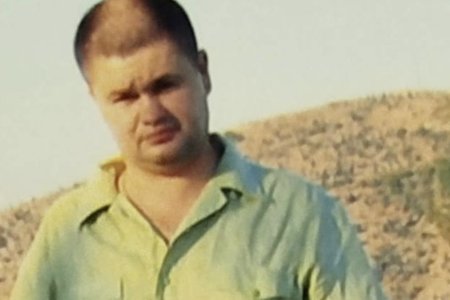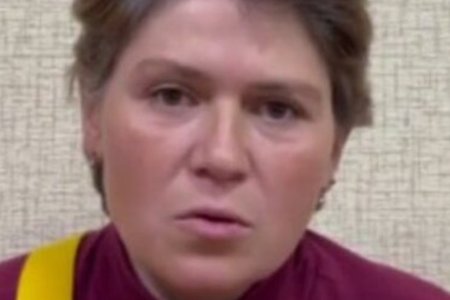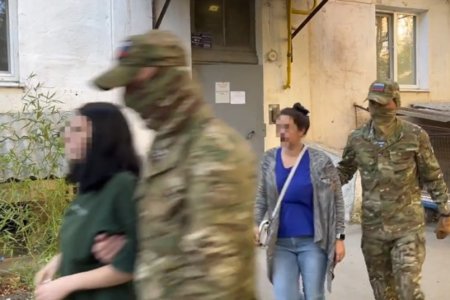
A Russian prosecutor has demanded a nine-year sentence and huge fine against Ukrainian Petro Opalnik who is accused of a dangerously woolly charge, introduced into Russian legislation soon after Russia’s full-scale invasion of Ukraine. Opalnik, a Ukrainian, is accused of ‘confidential cooperation with Ukraine’ under Article 275.1 of Russia’s criminal code, as well as of planning to organize efforts to persuade Russian soldiers fighting in Ukraine to surrender. The latter charge, under Article 352.1, was changed from ‘an attempt to organize voluntary surrender’ to ‘a plan to organize voluntary surrender’, yet prosecutor Georgy Zhukov still deemed these alleged actions to deserve a 9-year sentence. The first charge can effectively apply to any contact with international organizations or individuals should Russia’s FSB decide that this constituted ‘action directed against the Russian Federation’s security’. What is specifically impugned in this case is difficult to say since the hearings were all held behind closed doors. The announcement of the verdict on 1 August by judge Alexei Mikhailovich Stanovsky from the Novgorod regional court will, however, be open to the public.
Zhukov asked for a nine-year sentence In a medium-security prison colony and a massive 500 thousand rouble fine, as well as restriction of liberty for a year after release from the sentence.
Petro Opalnik is one of an ever-increasing number of Ukrainians seized in Russia or occupied Ukrainian territory, generally tortured and imprisoned since 2014. While many Crimean Tatars or other Ukrainians have been persecuted for their civic journalism or activism, for pro-Ukrainian views, etc., some appear to have been targeted because they are Ukrainian. Whether this is the case here is hard to say, however the 41-year-old does not appear to have engaged in any political or civic activism. He is also one of the first to be prosecuted under two highly dubious articles of Russia’s criminal code introduced in the first months of Russia’s full-scale invasion of Ukraine. Article 275.1 was signed into force by Russian leader Vladimir Putin in July 2022 and punishes for something termed ‘confidential cooperation with foreigners’, with a possible sentence of up to 3-8 years’ imprisonment. This essentially refers to any form of communication with foreigners which allegedly “helps activities knowingly aimed against the Russian Federation’s security”. The use of this charge is under the Russian FSB’s jurisdiction and, as lawyer Yevgeny Smirnov has pointed out, it can be used as the FSB pleases. The latter can effectively punish a person for any private communications with an organization or person accused of activities aimed against ‘Russian security’. What anti-war sentiments, opinions, etc. are deemed to fall under the article depends solely on FSB practice and mind-frame. This is, Smirnov says, a totally political charge which could be applied against any individual who has contact with foreigners.
The second charge of ‘attempting to, or later, of planning to organize voluntary surrender’ under Article 352.1 is also a result of Russia’s full-scale invasion of Ukraine. The new charge was added to the Russian criminal code immediately after Russia’s so-called ‘partial mobilization’ in September 2022, with Mediazona reporting that Petro Opalnik is the first person to face such prosecution.
41-year-old Opalnik is from Vinnytsa oblast, and has a daughter in Ukraine from his first marriage. He moved to Novgorod oblast in 2011, where he worked as a builder. He has a 10-year-old daughter in Russia from his second marriage and was living with his common-law wife Iryna when arrested in January 2023. He received Russian citizenship in the summer of 2022, around the time that Putin signed into law the article which was soon to be used against him.
According to his sister, Nadiya, his family in Ukraine reacted with understanding to his acceptance of Russian citizenship since he had built a life for himself in Russia. His mother was simply concerned that this could put him at risk of mobilization. It also put him in danger of politically motivated persecution.
He was seized by armed men in camouflage gear on 18 January 2023 as he and Iryna were heading off to work. Iryna recalls that, when she saw the arrest warrant, her “first impression was that they are checking all Ukrainians”. There were a lot of Ukrainians in the city, she adds, saying that Petro knew most of them and they constantly phoned and discussed what was happening in Ukraine.
It is typical that the state-controlled RIA-Novosti only posted information about and a video of Opalnik’s ‘arrest’ on 13 March 2023. Opalnik, who was described as ‘a Russian’, was claimed to have, “on instructions from Ukrainian Military Intelligence, tried to persuade those mobilized to commit state treason – to pass on information about the places of deployment of units, theft of military technology and surrender.”
His family are adamant that the charges are false, and since there have been a large number of court hearings, Opalnik is clearly denying them. This almost certainly means that, at some point, he was finally allowed access to independent lawyers, something that the FSB and Investigative Committee typically try to prevent.
Since he was held in solitary confinement for the first two months, it is likely that at this stage, he had only state-appointed ‘lawyers’ who are normally there to persuade a person to admit to all the charges.
After initial optimism that all would be resolved and he would be freed, he learned of the likely sentence and became very depressed. In one of his letters, he wrote: “If I die, do not bury me. Cremate my body and send the ashes to my mother – do not bury me on Russian soil.”



